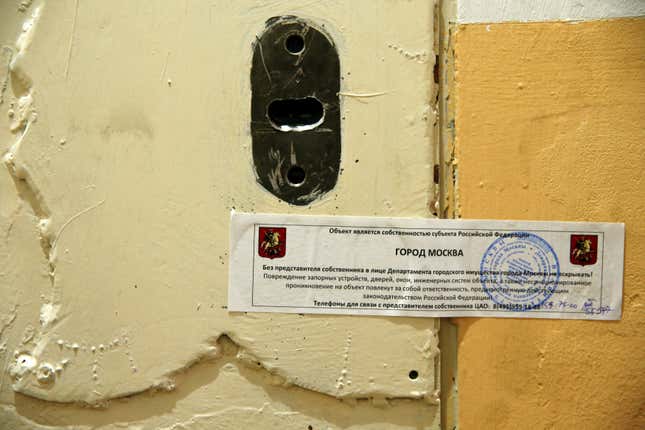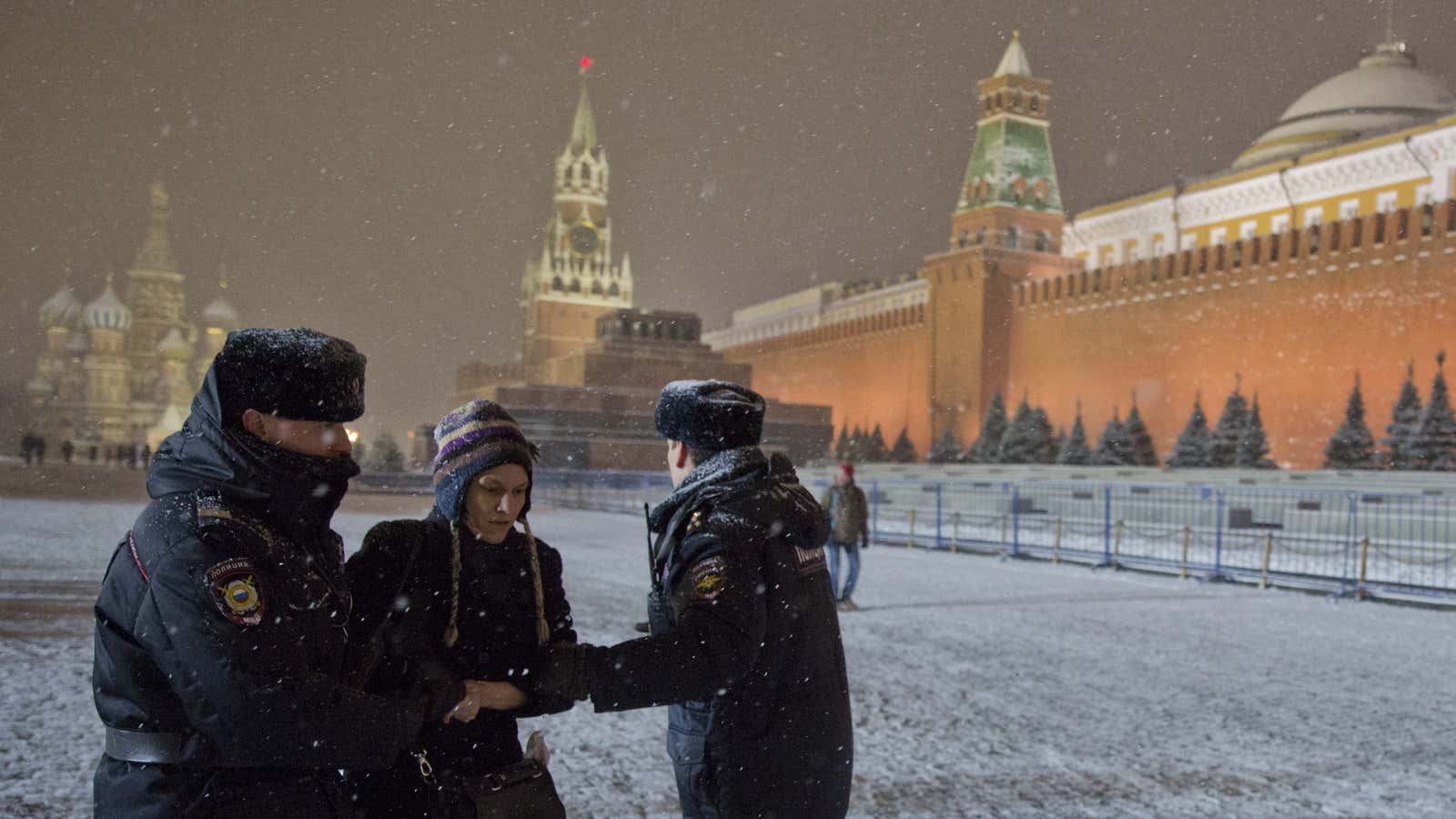Ever since mass protests erupted in Russia in 2011, the Kremlin has been slowly taking apart the civil society that it believes is working to bring down the government.
First came the 2012 “foreign agents” law against any organizations receiving foreign funding, which has hit Memorial, a renowned Russian human rights organization that played a huge role in documenting the crimes of Josef Stalin in the 1980s, and the Levada Center, Russia’s leading independent pollster.
Next, parliament passed a 2015 law allowing the Kremlin to shut down without a court order any NGOs it considers ”undesirable.” Organizations like George Soros’ Open Society Foundation, the National Endowment for Democracy and the International Republican Institute have all had to shut up shop. Some lawmakers have suggested Amnesty International and Human Rights Watch also be banned.

Now, Moscow local authorities have forcibly closed Amnesty’s office in the Russian capital. The NGO’s employees arrived at work to find their doors sealed off and the locks changed, says Amnesty’s Europe and Central Asia director John Dalhuisen. Authorities said the NGO was in arrears on its rent and that they had warned it to pay up or face eviction; Amnesty, however, strongly denies being behind on rent and says it didn’t receive any such warning—and will meet authorities on Nov.3 to argue its case.
“We’re going to try and hammer it out with them and show them the relevant pay slips because we’re completely confident that our own house is in order, even if we can’t reside in it,” says Dalhuisen. Amnesty has been in the office since at least the early 2000s—earlier this year the landlord increased rent unannounced but Dalhuisen says the NGO has complied with the new rates.
The move seems a retaliation against Amnesty’s “staunch criticism” of the Kremlin’s domestic human rights record and alleged war crimes in Syria and Ukraine, says Human Rights Watch’s Russia project director Tanya Lokshina.
“Independent rights groups find themselves under tremendous pressure these days and there are different measures taken by authorities and their proxies to intimidate such organizations, to make them pull their punches,” she says. “This situation appears part of the same trend.”
The Moscow Mayor’s office didn’t respond immediately to phone and email requests for comment. The city told state news agency Ria Novosti in a statement that it had warned Amnesty its lease would be terminated if it didn’t repay rent within a month but said the “careless renter” had ignored the notice. The statement did not say when the warning had been issued or give details of when Amnesty had failed to pay its rent.
Dalhuisen says the NGO has no intention of stopping its operations in Russia and is willing to take the authorities to court to resolve the issue at hand.
